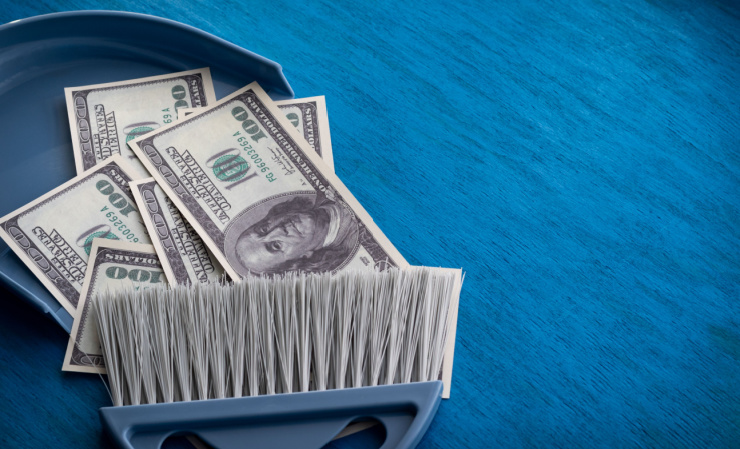
Your Survival Guy has warned you to separate your banking from your investments at companies that do both, like Charles Schwab. Now, Justin Baer reports in The Wall Street Journal on some of Schwab’s problems with trying to run both a brokerage and a bank, writing:
Schwab launched its bank in 2003 as a way for customers to get debit cards, checks and sometimes mortgages from the same firm that oversaw their investments. Its banking ambitions appeared limited, at least at first. In 2008, Schwab held about $24 billion in deposits, to JPMorgan’s $1 trillion.
The company gobbled up deposits in the low-rate years that followed, peaking at about $465 billion in early 2022 and making Schwab one of the biggest banks in the U.S.
It was a boon for shareholders and, at times, a sore spot for customers.
For years, Schwab swept brokerage customers’ spare cash into money funds, “or sweep accounts.” Over time, though, Schwab increasingly shifted that money into its own bank as deposits, which usually pay lower interest.
Schwab said the practice allowed it to lower customer fees on other services.
Schwab laid out its strategy in a 2017 presentation to Wall Street. Every $10 billion the company moved into bank deposits would add about $120 million in interest revenue, Bettinger said then.
The growth made Schwab look more like a bank, and less like a broker dependent on customers’ trading activity. Net interest revenue became the big driver of Schwab’s results, last year accounting for more than half of total revenue.
The bank also enabled Schwab to outflank brokerage rivals. In 2019, Schwab announced it would eliminate commissions on stock trades—the first big traditional brokerage to do so.
Days later, TD Ameritrade, E*Trade and Fidelity Investments followed suit. But TD Ameritrade and E*Trade depended far more on trading fees than Schwab did. Within months, both agreed to sell themselves—TD to Schwab, E*Trade to Morgan Stanley.
When Covid hit, Schwab found itself in the best of both worlds. Newbie investors, stuck at home, flooded its platform. The Fed again slashed rates to near zero, assuring that many of those new customers would leave their cash in deposits.
Most of them did. But when the Fed started raising rates, the flow of deposits onto Schwab’s balance sheet reversed.
The question for investors is what might happen the next time market conditions change sharply—and how firms such as Schwab will respond.
Action Line: As I have written before, if you have an account with Schwab and you have money in cash, consider moving it to Fidelity. When you need more help, let’s talk.
P.S. Read more about Schwab here:
- What’s Happening to Charles Schwab?
- $0 Commissions: Charles Schwab Has Always Been About Charles Schwab
- BROKE THE BANK? Schwab Borrows $2.5 Billion
- Schwab vs. Fidelity: Separate Your Banking from Your Investments
- Schwab Down 30%, Fidelity, Vanguard, BlackRock, and You
- Doing Business with Fidelity (Not Schwab)



